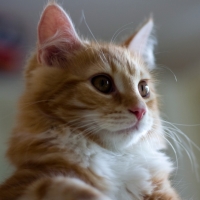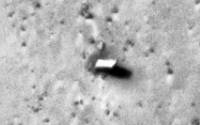The XMOS L1-64 is .5mm pitch and the L1-128 is .4mm pitch.
Has anyone had experiences soldering these with solder paste and hand assembly?
This would be the smallest pitch I hand assembled and wondered if other people have had good luck and what the technique used was.
Did you use a stencil or syringe?
Thanks.
Prototyping PCBs with XMOS chips
-
kster59
- XCore Addict
- Posts: 162
- Joined: Thu Dec 31, 2009 8:51 am
-
wibauxl

- Active Member
- Posts: 35
- Joined: Mon Dec 14, 2009 4:40 pm
No problem for me using the solder and wick technique down to 0.4mm.
I found Sparkfun tutorial ( http://www.sparkfun.com/commerce/tutori ... ials_id=96) very clear and it worked for me with a hot soldering iron and very thin wicking tape.
Have fun!
I found Sparkfun tutorial ( http://www.sparkfun.com/commerce/tutori ... ials_id=96) very clear and it worked for me with a hot soldering iron and very thin wicking tape.
Have fun!
Laurent
lm.wibaux@gmail.com
lm.wibaux@gmail.com
-
leon_heller

- XCore Expert
- Posts: 546
- Joined: Thu Dec 10, 2009 10:41 pm
- Location: St. Leonards-on-Sea, E. Sussex, UK.
I tack down two opposite corners and drag-solder the leads with a Metcal mini-hoof cartridge, using plenty of gel flux.
-
f_petrini

- Active Member
- Posts: 43
- Joined: Fri Dec 11, 2009 8:20 am
I've used solder paste and hot-air to solder a couple of L1-64. I used a syringe to apply a thin string of paste across the pads (and some on the ground pad).
-
shawn

- XCore Addict
- Posts: 238
- Joined: Thu Dec 17, 2009 5:15 am
I'm going to buy some boards and work them.
After i am comfortable I'll get into soldering.
Any suggestions for soldering guns or other tools?
Price being of some concern, tools are important
so I don't mind paying extra if it warrants. Still
the board I wish to design is beyond my skill set.
I am going to have to pay extra for assembly.
I have done lots of soldering just not detail board work.
After i am comfortable I'll get into soldering.
Any suggestions for soldering guns or other tools?
Price being of some concern, tools are important
so I don't mind paying extra if it warrants. Still
the board I wish to design is beyond my skill set.
I am going to have to pay extra for assembly.
I have done lots of soldering just not detail board work.
-
f_petrini

- Active Member
- Posts: 43
- Joined: Fri Dec 11, 2009 8:20 am
You can do it with any of the techniques described here. It's just a matter of how quick it is and what you prefer. To get started you'll only need a (temperature controlled) soldering iron and some wick.
Some kind of magnifying glass or loupe is always useful if you don't have eyes like a hawk. Those 0.4/0.5mm pitch legs are tiny.
I used to drag-solder with an iron and flux but since I got a hot-air station I do most soldering with that. I find it quicker to apply paste on all pads, place the components and then solder everything in one sweep using hot air.
Some kind of magnifying glass or loupe is always useful if you don't have eyes like a hawk. Those 0.4/0.5mm pitch legs are tiny.
I used to drag-solder with an iron and flux but since I got a hot-air station I do most soldering with that. I find it quicker to apply paste on all pads, place the components and then solder everything in one sweep using hot air.
-
lilltroll

- XCore Expert
- Posts: 956
- Joined: Fri Dec 11, 2009 3:53 am
- Location: Sweden, Eskilstuna
I have one of these:

Making it very easy to solder small things by hand.
You can use something similair to this as well. It's not so expensive.


Making it very easy to solder small things by hand.
You can use something similair to this as well. It's not so expensive.

Probably not the most confused programmer anymore on the XCORE forum.
-
f_petrini

- Active Member
- Posts: 43
- Joined: Fri Dec 11, 2009 8:20 am
I use a magnifier lamp like in the picture below. (That's my soldering/lab bench. :) )
It works well for soldering and placing components. I use a simple loupe for closer inspections.
I'd love to have one like yours, lilltroll. But I guess it's quite expensive so for my hobby work I'll have to make do with something simpler. ;)


It works well for soldering and placing components. I use a simple loupe for closer inspections.
I'd love to have one like yours, lilltroll. But I guess it's quite expensive so for my hobby work I'll have to make do with something simpler. ;)


-
leon_heller

- XCore Expert
- Posts: 546
- Joined: Thu Dec 10, 2009 10:41 pm
- Location: St. Leonards-on-Sea, E. Sussex, UK.
I use a cheap (£60 or so) stereo dissecting microscope for working with fine-pitch devices.
-
shawn

- XCore Addict
- Posts: 238
- Joined: Thu Dec 17, 2009 5:15 am
Sounds to me like I should try to find a decent hot air solder iron.
perhaps make an inexpensive re-flow oven. And get my self some
good optical tools. with just a few more tools i should be able to
assemble small boards. There's a PCB manufacturer 15 min away,
perhaps they can help assemble my more stringent designs. Hell,
they periodically need new employment, being out in the country
good help is hard to find, maybe I could take up an apprenticeship.
PCB design is an art, not for the squeamish. I talked to some tech
from the local airbase about boards and he was rather quick to point
out one problem that occurs in multilayer boards and how easy it is to
burn traces totaling the whole board usually.
Thank you for the feedback,
Shawn
perhaps make an inexpensive re-flow oven. And get my self some
good optical tools. with just a few more tools i should be able to
assemble small boards. There's a PCB manufacturer 15 min away,
perhaps they can help assemble my more stringent designs. Hell,
they periodically need new employment, being out in the country
good help is hard to find, maybe I could take up an apprenticeship.
PCB design is an art, not for the squeamish. I talked to some tech
from the local airbase about boards and he was rather quick to point
out one problem that occurs in multilayer boards and how easy it is to
burn traces totaling the whole board usually.
Thank you for the feedback,
Shawn
